Young student leaders fight against the odds to turn the tides in the upcoming DUCSU poll
-68bc6b448288b.jpeg)
In post-uprising Bangladesh, the upcoming Dhaka University Central Students’ Union (Ducsu) election has sparked unusual excitement.
For 15 years under Sheikh Hasina’s autocratic grip, elections of every kind–national, local, even rural school committee polls–were reduced to farce, their outcomes predetermined in favor of the ruling party.
The July uprising carried a deeper promise: restoring to Bangladeshis their most fundamental right–the power to choose leaders through the ballot. The movement’s 21 turbulent days may not have declared that outright, but its spirit was unmistakable: to transform people from passive subjects into active citizens again.
The national election, set for February 2026, remains under watchful speculation–questions of delay still linger–but the interim government has signaled its intent to stage a genuine vote after nearly two decades.
In that context, the Ducsu polls are more than a campus affair. They mirror, in miniature, the national stakes.
With the Awami League under an interim ban and its student wing branded as a terror outfit, Chhatra Dal, the student arm of the BNP, is seen as the natural frontrunner.
Shibir, Jamaat’s student organization, has surged in popularity, running one of the most disciplined campaigns–particularly on social media. Meanwhile, left-leaning groups like Students Against Discrimination (SAD) and Chhatra Union could yet emerge as dark horses.
Against this backdrop, Bangla Outlook’s special correspondent Abu Jakir visited Dhaka University’s TSC to speak with three Ducsu poll candidates–Tahmid Al Mudassir Chowdhury, Rezwan Ahmed Rifat, and Anika Tahsina.
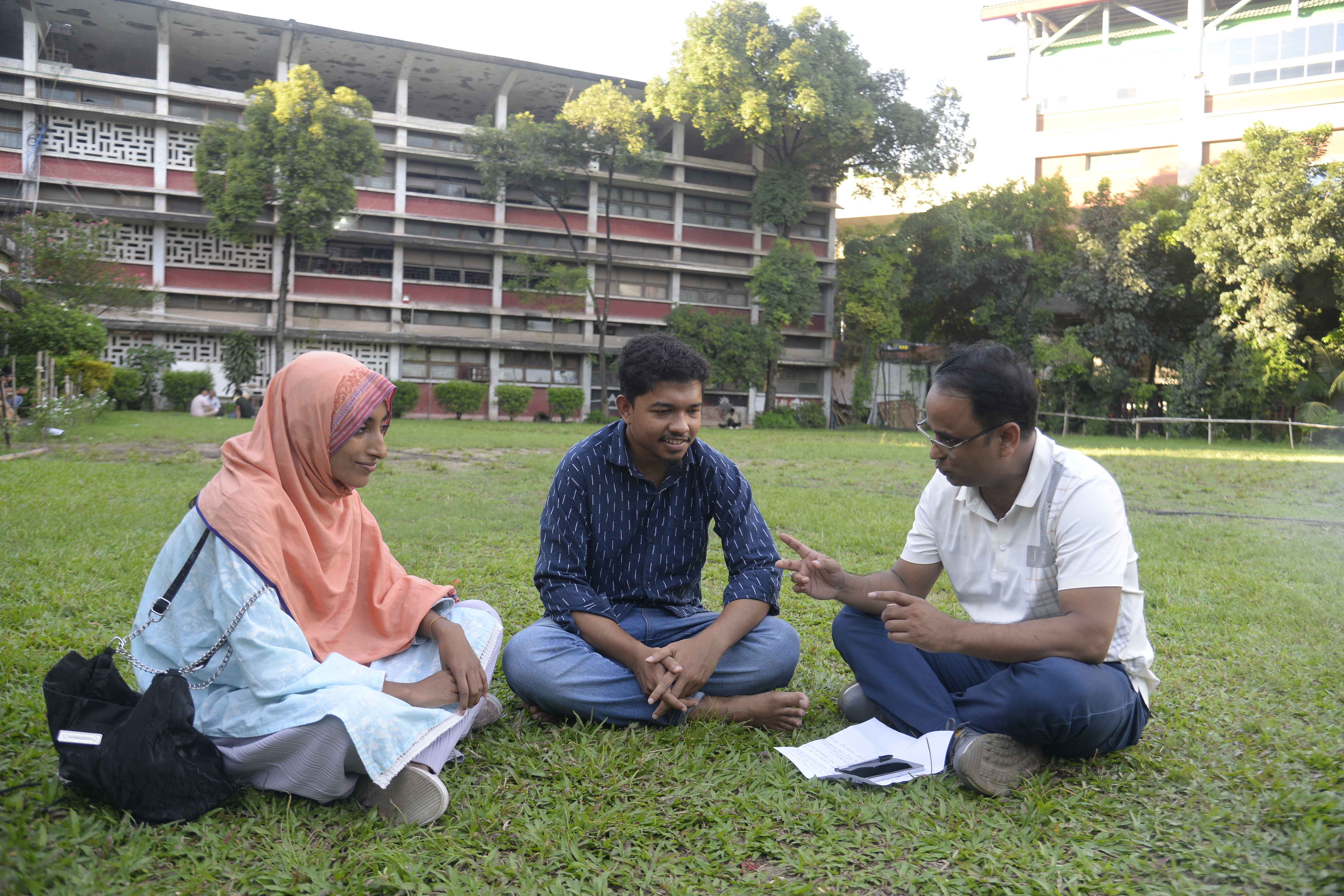
Neither tied to heavyweight parties nor tainted by past violence, they offer a rare fresh breeze in student politics. Here are excerpts from those conversations.
Abu Jakir: Tahmid, let’s begin with you. As an independent candidate for AGS, how do you view the DUCSU elections in the wake of the July 2024 Revolution?”
Tahmid Al Mudassir Chowdhury: The mood is undeniably optimistic. After 2024, there was a broad consensus: the revival of student union elections had to come first. Only through these elections could Bangladesh begin to reclaim the democratic rights that were crushed, stolen, and withheld for so long. A year later, that long-suppressed demand is finally being met.
The return of DUCSU polls marks more than a procedural exercise—it signals the first crack in a system that thrived on silencing voices. For once, the atmosphere feels open, competitive, even healthy. And that in itself is a rupture from the suffocating culture of stage-managed votes that defined the last decade and a half.
Yet the shadows haven’t disappeared. Obstacles have surfaced at every turn, culminating in the recent, deeply contentious High Court verdict. The message is unmistakable: powerful factions remain intent on derailing the DUCSU elections. The efforts are coordinated, coming from different corners, but the underlying goal is the same—to prevent the student body from exercising its hard-earned right to choose.
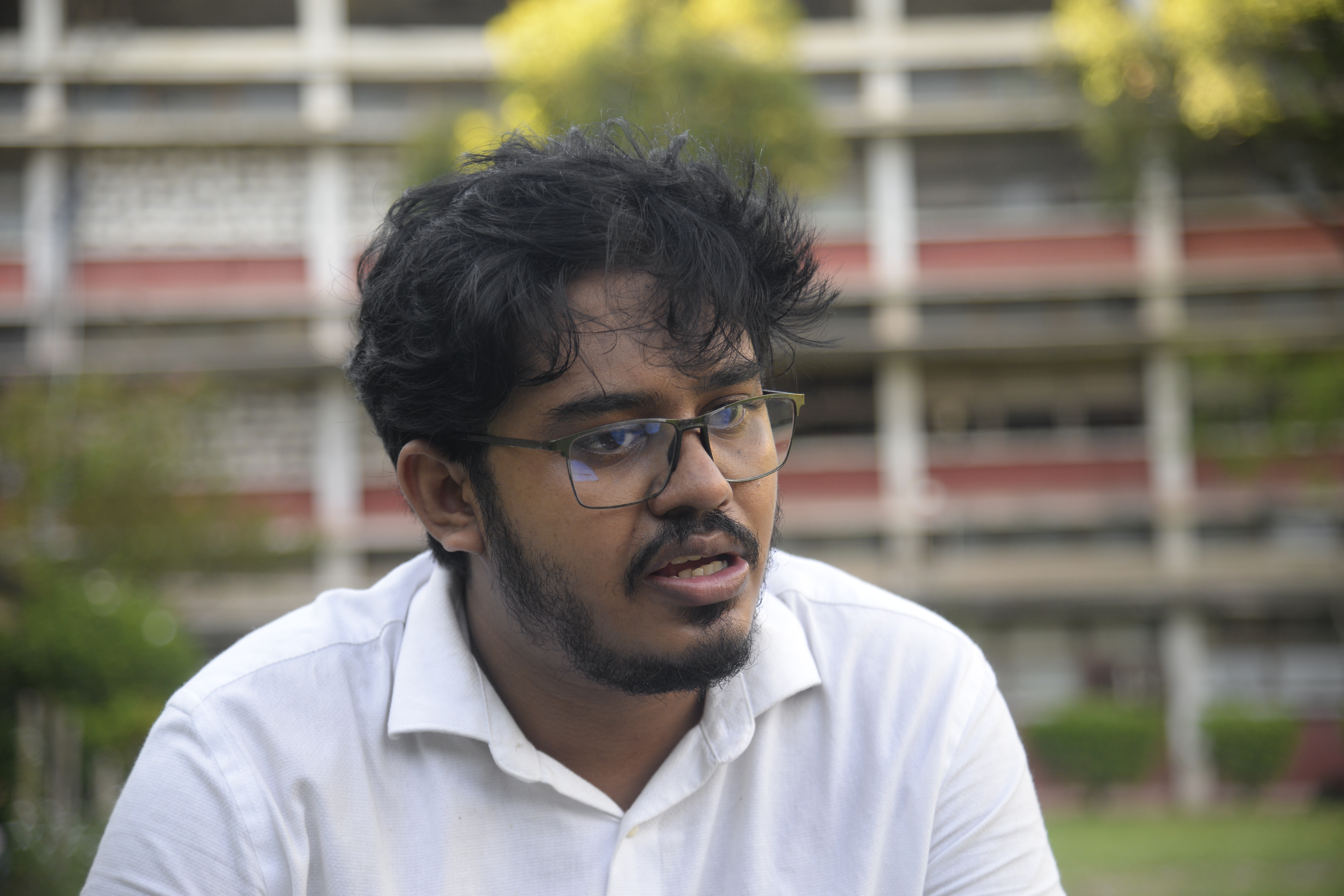
AJ: Who, in your view, is actually conspiring?
TAMC: I’ve said this before, and I’ll say it again without hesitation: a section of the establishment fears nothing more than empowered students and the rise of genuine student leadership. Because once that leadership takes root, it shakes the very foundations of their control. We saw this after 2006, when military rule descended on Bangladesh—the greatest threat to that regime came not from boardrooms or parliament, but from the students.
The signs are already unmistakable. Bangladesh’s political landscape is entering a turbulent phase, and campuses are once again at the center of the storm. A minor incident at Chittagong University was deliberately inflated into a major clash. At Rajshahi University, unrest is being orchestrated to suppress RAKSU. At Bangladesh Agricultural University, teachers even brought in outsiders to attack their own students. These aren’t isolated events—they are calculated attempts to destabilize universities and choke off student voices.
All of this is connected. If student union elections go forward, every university in this country will soon have elected leaders who carry a legitimate mandate. Those leaders can safeguard campuses, prevent unrest, and restore accountability. That is what we are fighting for, and that is exactly what the people of Bangladesh want.
AJ: Rezwan, you’re running for Career Development Secretary in the DUCSU polls. If elected, what concrete steps will you take to advance students’ career opportunities?
Rezwan Ahmed Rifat: When I first entered university, I received a syllabus and a course outline-but nothing that mapped out what comes after. Too many students reach their final year, or even complete their Master’s, without a clear idea of the career paths available to them.
For most, the choices appear limited to BCS exams or government jobs. Beyond that, there is no centralized system to inform students about the opportunities tied to their specific departments.
That is why my manifesto is built around a three-stage plan for career development: Information, Infrastructure, and Facilitation.
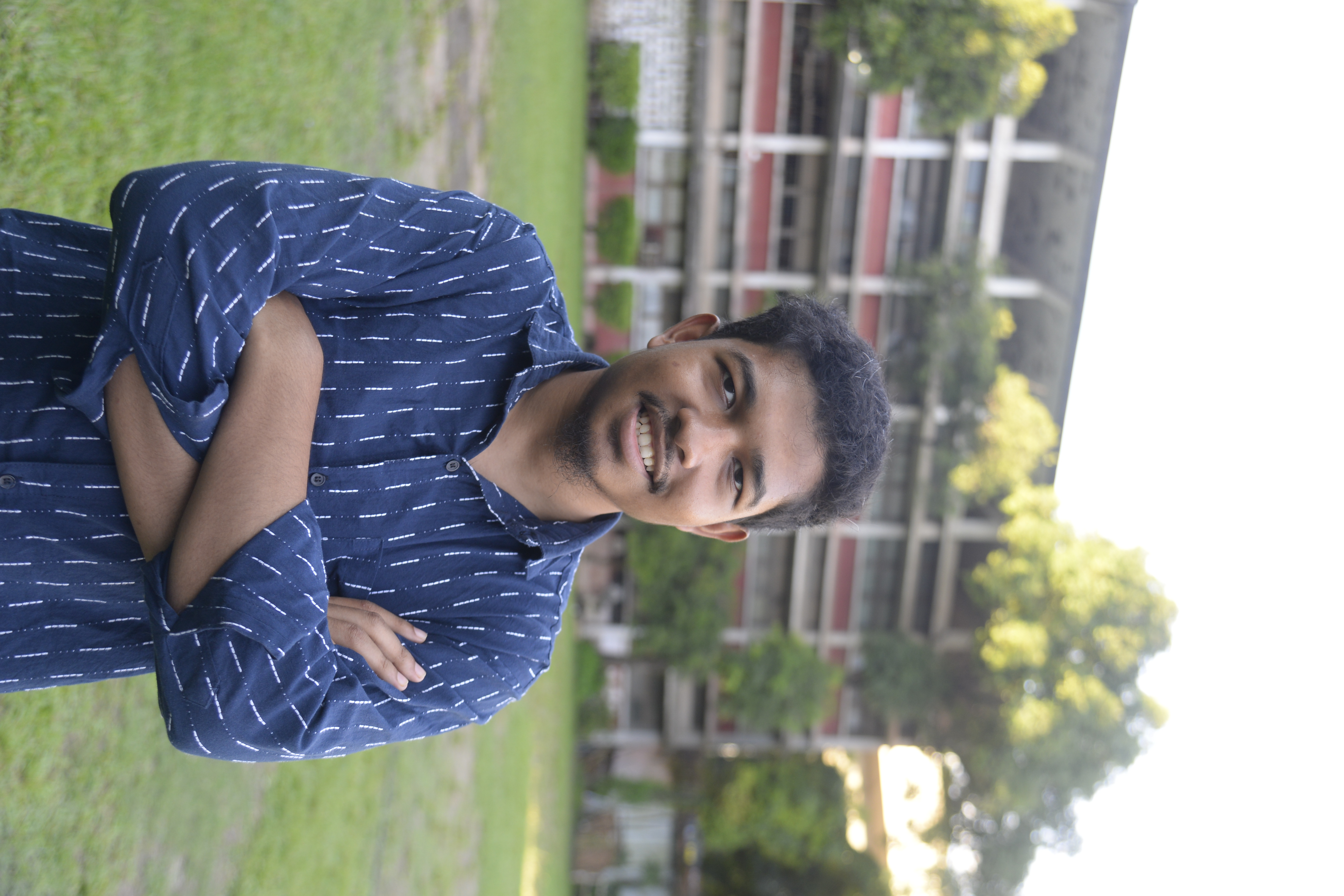
Information: Every department will create a career handbook, distributed alongside first-year materials. For instance, a law student would immediately see that there are 20 distinct career tracks available, each with a roadmap on how to get there. Students should be able to chart their own paths instead of stumbling in the dark.
To complement this, we will launch a dedicated platform-DU2Career.com-with resources, e-books, and an alumni network. Mentorship and references are vital; students must be able to identify seniors working in NGOs, multinational companies, or other fields, and connect with them directly.
Infrastructure: The digital divide on our campus is stark-70 to 80 percent of students do not own personal computers. Departmental labs close by 5 p.m., and hall labs shut down by 8 p.m.-precisely when most students begin their real academic work after tutoring or part-time jobs.
Without access to devices, they inevitably fall behind. To fix this, I propose establishing 24/7 computer centers in every hall, ensuring that no student is excluded from academic or professional growth simply because they lack resources.
AJ: Anika, your activism has already drawn wide praise. As a candidate for Human Rights and Law Secretary, if elected, how do you plan to tackle human rights issues on campus?
Anika Tahsina: As a student of the Law Department, I have had the chance to work directly on issues that matter for our generation. After the July Revolution, I represented Bangladesh at the 57th session of the United Nations, where I built connections with key international organizations.
Later, I worked on the investigation of July crimes. These experiences, along with networks such as the planned UN Human Rights Office in Dhaka, can be used to create real opportunities for our students–internships, fellowships, human rights governance initiatives on campus, and new career tracks in law.
But the reality on our campus tells a different story. Women–especially those living in halls—face systemic neglect and discriminatory behavior. Basic rights to food, housing, clothing, and healthcare are routinely ignored. Day-to-day life for many students does not even meet minimum human rights standards.
That is why my manifesto is built on two urgent priorities: upholding basic rights and ending discrimination against women. My first concrete pledge is to introduce two days of menstrual leave for women students.
Non-residential students face their own challenges. Common rooms often fail to provide safe rest spaces, sanitary products are unavailable in halls, and there are no gynecological services on campus. This neglect leaves women exposed to unnecessary health risks while the administration looks the other way. These gaps must be addressed immediately.
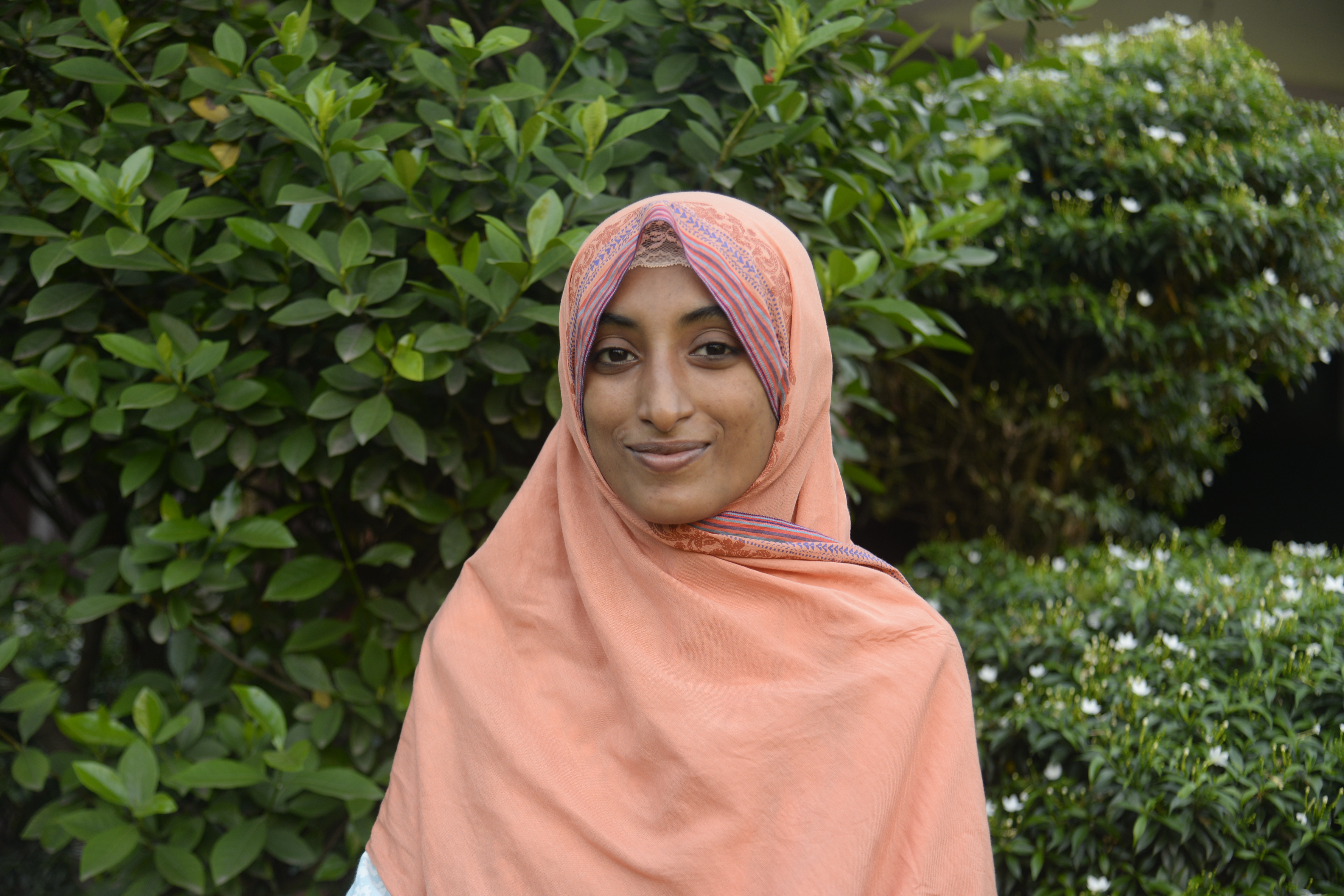
Another cornerstone of my manifesto is women’s digital and physical safety. During the July movement, women stood at the forefront. Promises were made to guarantee their safety, yet those promises have since been betrayed.
Instead of encouraging independent female leadership, attempts have been made to silence us–reducing women to tokens while intimidating those who try to lead with authenticity. Their security has been compromised both online and offline.
To push back, I pledge to organize self-defense, mental health, and career development trainings across the campus so women can build confidence and claim their space. Ensuring robust digital security for women students is also central to my agenda. A campus that is unsafe for women is unsafe for everyone–and I refuse to accept that.
AJ: Rezwan, how do you see the upcoming DUCSU election set for July 2024? With controversies and conspiracies already swirling, do you think there’s still a risk it could be derailed?
RAR: For decades, one of the main reasons DUCSU elections were withheld was simple: to keep young people out of politics. This depoliticization deepened during the last 15 years, until students were so detached that many today cannot even say what DUCSU is, what it should do, or whether it ought to be political at all. That apathy is no accident—it is the direct product of systematic suppression.
But in the post-2024 context, the demand is clear: we want a new kind of leadership to emerge—independent of old political parties and their corrupt culture. Extortion and patronage once defined student politics. We refuse to repeat that. The very reason the establishment resisted DUCSU polls for so long is because they feared what empowered students could become: real challengers to the status quo, capable of offering better leadership and governance.
This election is happening only because students fought for it, united for it, and demanded it relentlessly for a year. Every attempt to delay or derail it failed in the face of that pressure. Now, with the vote set for the 9th, it appears we will finally see it through.
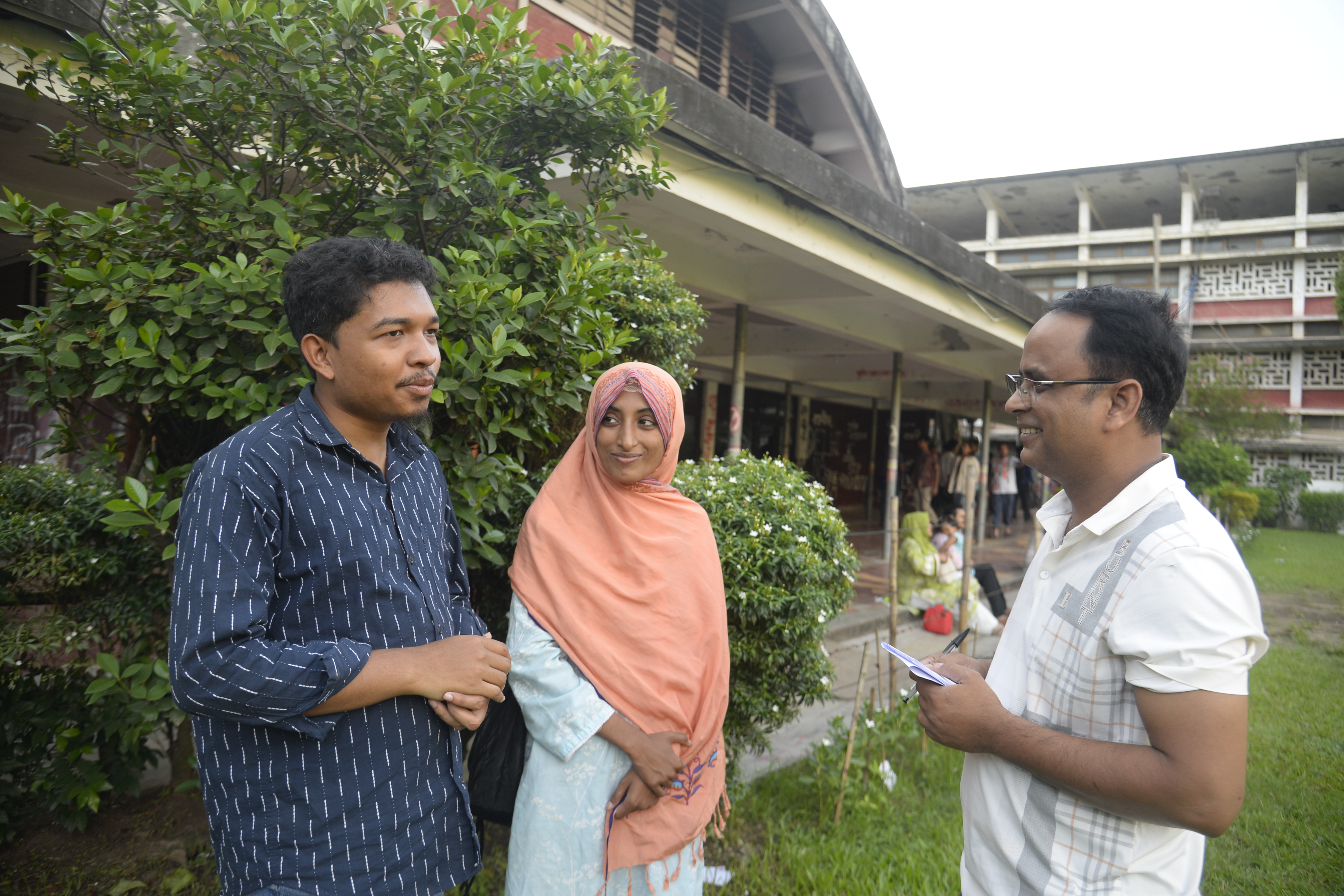
Encouragingly, many candidates are offering fresh, forward-looking ideas. Even if only a fraction of those proposals are realized, both the university and the country will benefit. Yet troubling signs remain: the creeping use of muscle power, outsiders distributing leaflets, polling centers deliberately placed far from women’s halls to suppress turnout. We see weaker panels resorting to voter suppression rather than competing honestly.
Even worse, the administration is enabling these tactics. Their partiality is glaring—whether in how the code of conduct is enforced, in where polling booths are placed, or in the reckless decision to shut the university down for seven days ahead of the vote. For first-year students, many of whom barely know what DUCSU is, this makes voting unnecessarily difficult. Instead of building excitement, the administration is manufacturing fear.
Still, we believe that if the rules are enforced fairly and engineering is prevented, every student will get the chance to vote freely. Only then will the results carry legitimacy—and only then will DUCSU elections fulfill their promise.
AJ: Tahmid, with major political parties fielding candidates and nearly ten panels in the race, students backed by big parties appear to have certain advantages. Do you believe independents like yourself are competing on an equal footing? And do you think all candidates are adhering to the code of conduct?
TAMC: I am running as an independent candidate, not part of any panel, though I am affiliated with the Bangladesh Democratic Student Union, where I have served as chief organizer. I carry the moral support of the Union.
In my view, the biggest challenge for independents is the media. No matter how much ground-level support you earn, the media rarely gives you equal attention. I have experienced this firsthand. When I visit halls and meet students, the response is positive-but in media coverage, I am reduced to “just an independent candidate.” Talk shows and programs focus almost exclusively on party-backed panels, sidelining voices like mine.
The real losers in these debates are ordinary students. Instead of discussing their rights and issues, debates are dominated by party rivalries, accusations, and infighting. While DUCSU undeniably carries political significance-and its leaders have responsibilities that extend to the national stage-their primary duty must remain with the university and its students. That focus cannot be lost amidst political theatrics.
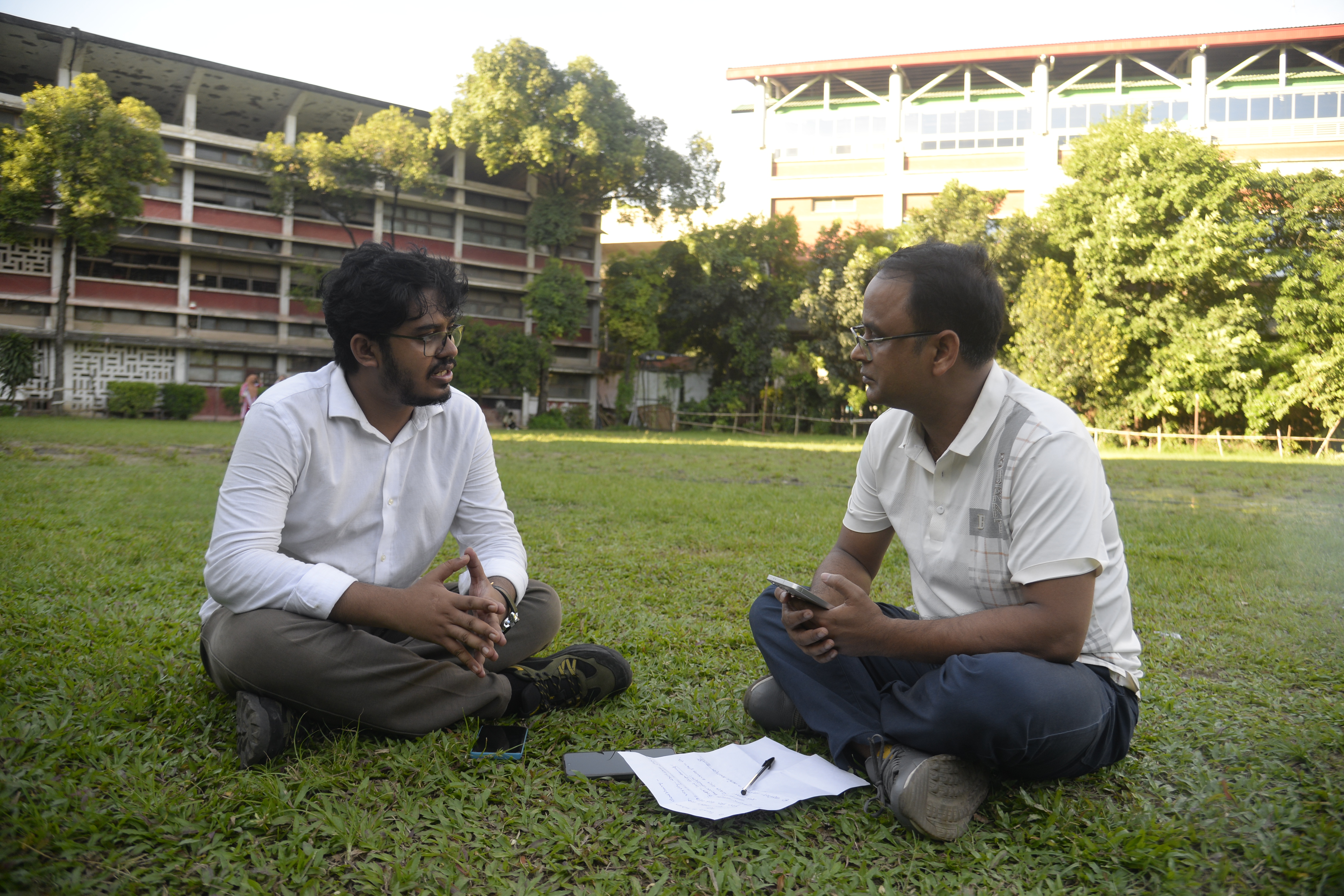
AJ: Anika, do you think the major party panels are breaching the code of conduct? And are independent candidates encountering obstacles in running their campaigns?
AT: Absolutely. The rules are being flouted openly. For example, nominations were not supposed to include more than five people—but this was blatantly ignored. We reported it to the administration multiple times, yet no action was taken.
Take the GS candidates from Jatiyatabadi Chhatra Dal, Tanvir Bari Hamim and Ashiqur Rahman. Both violated the code of conduct, but no measures were enforced.
In Rokeya Hall, where I live, another clear violation occurred. Before official campaigning even began, candidate Umama Fatema was rehearsing with hall residents at 1:30 a.m. Despite this, the hall administration turned a blind eye. Had we done the same, our nominations would have been canceled and disciplinary action taken immediately.
The reality is stark: the so-called “code of conduct” exists only on paper. In practice, it is applied selectively, leaving independents like us completely unprotected.
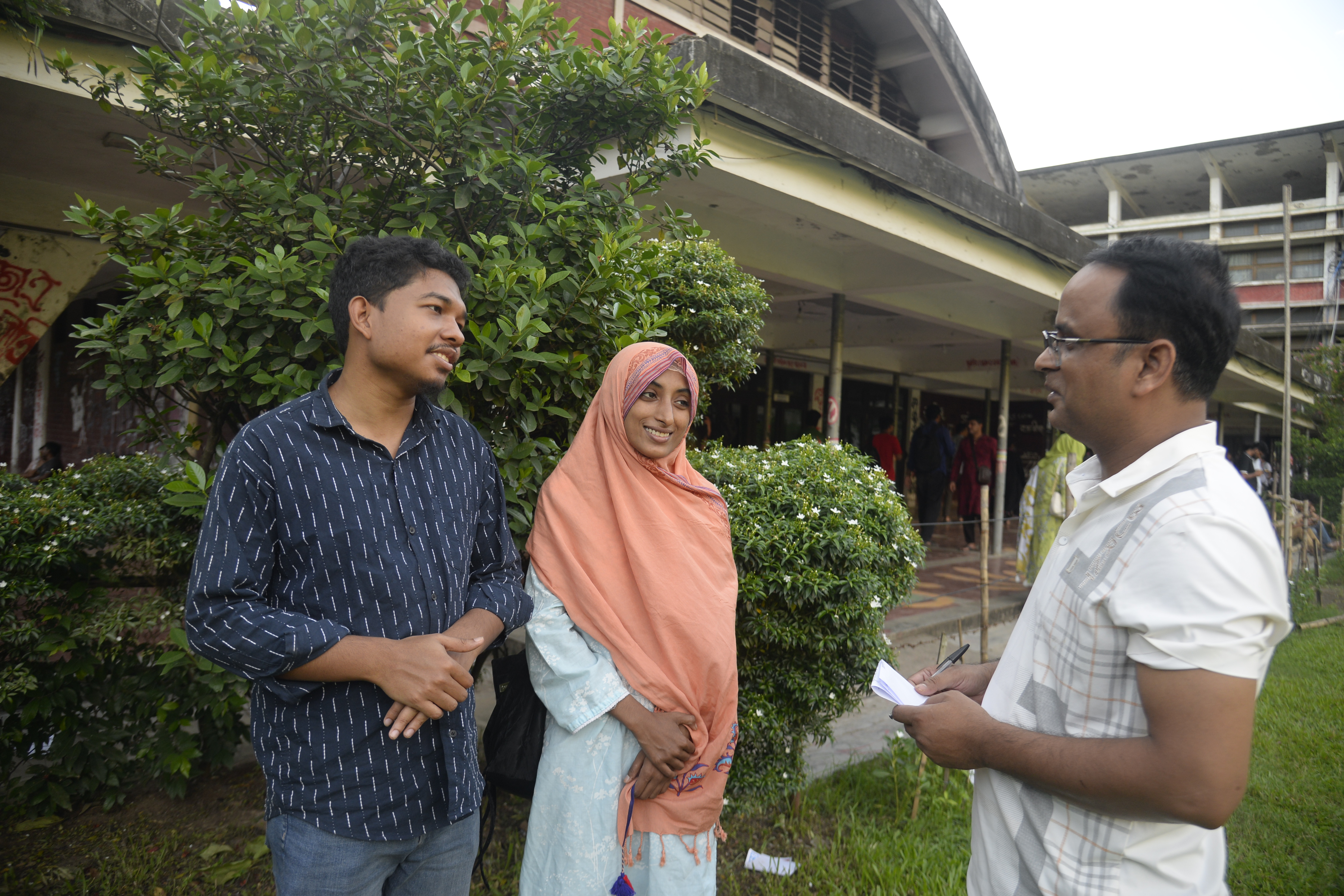
AJ: Tahmid, if elected as an independent candidate, what concrete steps will you take to serve the students?
TAMC: My manifesto rests on five key commitments to transform Dhaka University. First, no student will attend class hungry: a food credit system and a Tk 50 crore fund will ensure nutritious meals, supported by digital currency and quality checks.
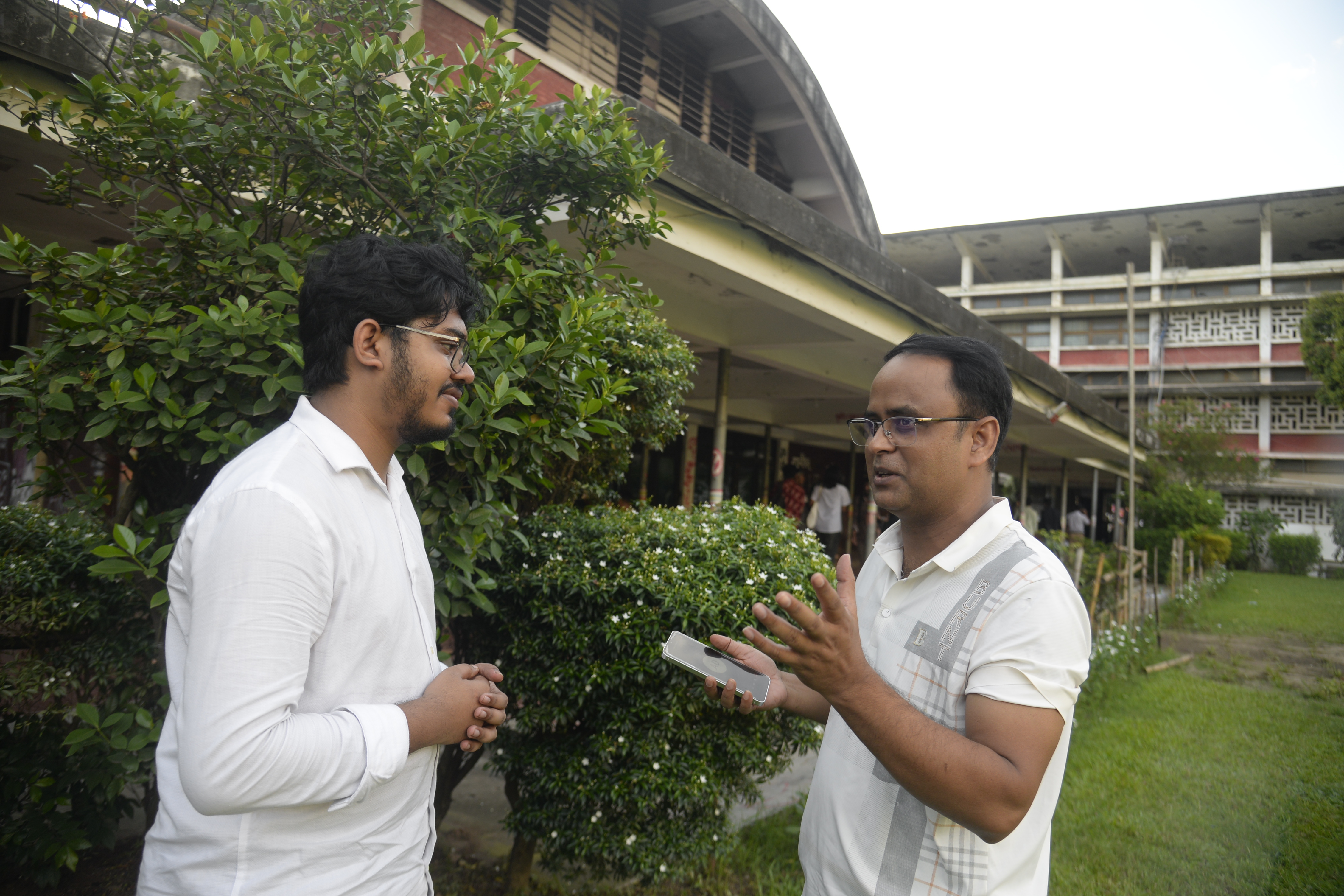
Second, accountability and transparency: a DUCSU Digital Dashboard and quarterly public hearings will track progress, while faculty recruitment and evaluation will meet international standards, with anonymous feedback.
Third, digitalization: the registrar’s office and hall administration will be fully digital, supported by a unified digital card and dedicated budget for software and website development.
Fourth, campus safety: 24/7 special guards, regulated shuttle services, a registered rickshaw system, an anti-harassment cell with female participation, daycare and breastfeeding facilities, and accessibility measures for visually impaired students.
Finally, research and career development: expansion of labs, recruitment of research assistants, updated curricula, a 10,000-book digital repository, access to premium research software, corporate partnerships creating 1,000+ jobs, and fair pay for student workers.
These five pillars–food security, accountability, digitalization, safety, and research-driven opportunities–will empower students and prepare them for the future.
AJ: Rezwan, why should students vote for you? How confident are you of victory?
RAR: This is a newly created position, and from talking to students, it’s clear that while some votes will go to party-backed panels, many will support individual candidates based on their portfolios, manifestos, and track records. From the start, I have been active against fascism on campus, and beyond politics, I have consistently focused on freelancing, upskilling, and other career-oriented initiatives—efforts that students have noticed and appreciated.
I view this role as a one-year mandate from the students specifically on career development. I pledge that, if entrusted with this responsibility, I will work tirelessly to ensure that every student receives their “appointment letter” for the future as swiftly as possible.
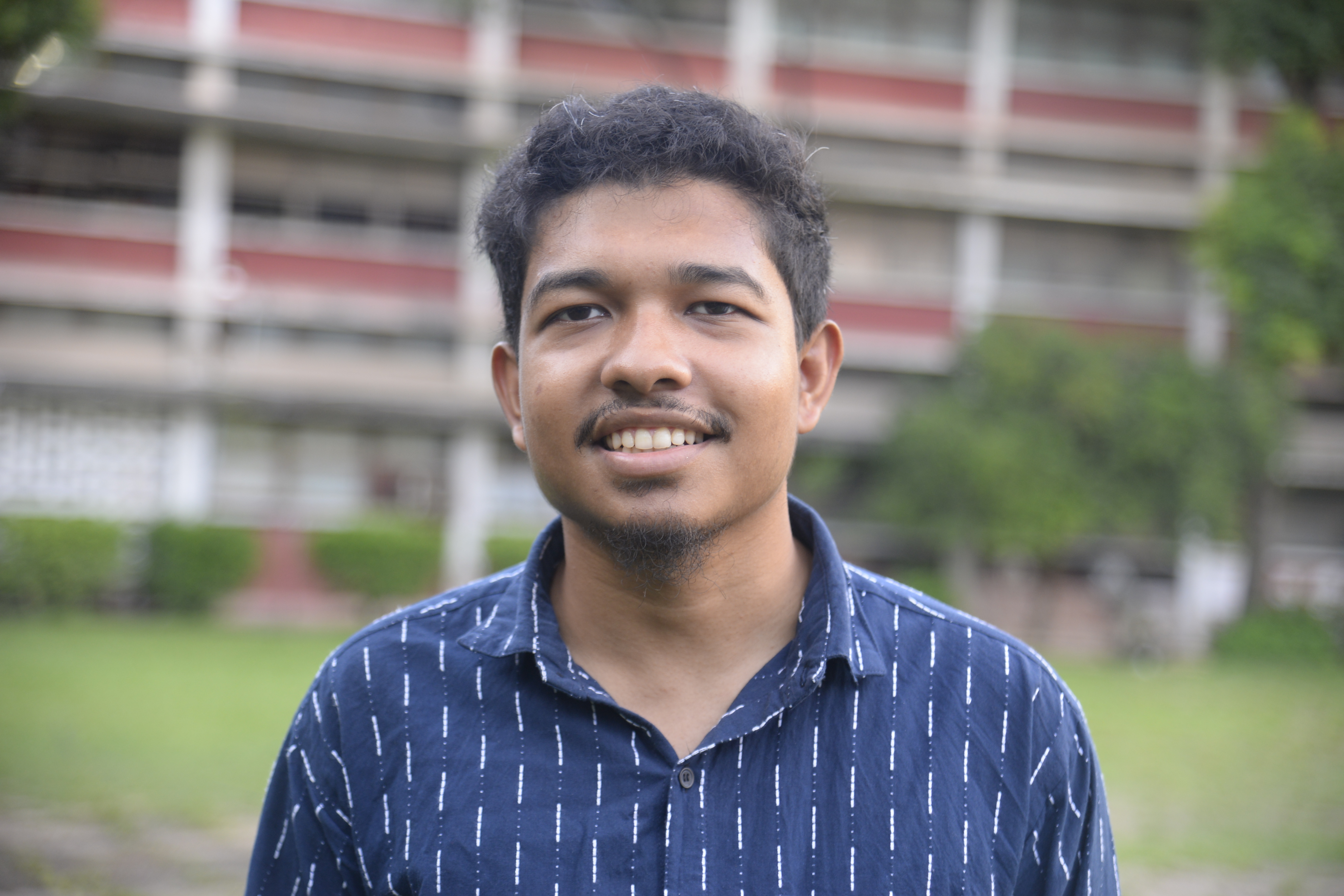
AJ: Anika, how has your campaign been received so far? Are you confident about your chances of winning? And what message do you have for the media, especially in light of claims that major party candidates are receiving disproportionate coverage?
AT: My greatest strength lies in the support of female students. I have worked closely with them for years, especially in the women’s halls. As a coordinator of Rokeya Hall, I played a key role in leading the July uprising.
Now, as I visit room to room, I hear them say, “Apu, we marched with you in July. If we don’t vote for you, who else would we vote for?” That solidarity gives me immense confidence. Even beyond our halls, students remember how we stood together in July and have continued to advocate for women’s rights and broader human rights. It is that record that I believe will compel many to support my leadership.
Unfortunately, the allegations are accurate. For days, our entire panel has been systematically ignored. From secretary-level candidates to AGS hopefuls, none of us have been invited to discussions or roundtables. Yet through the July uprising, we already established ourselves as a legitimate, recognized force on campus.
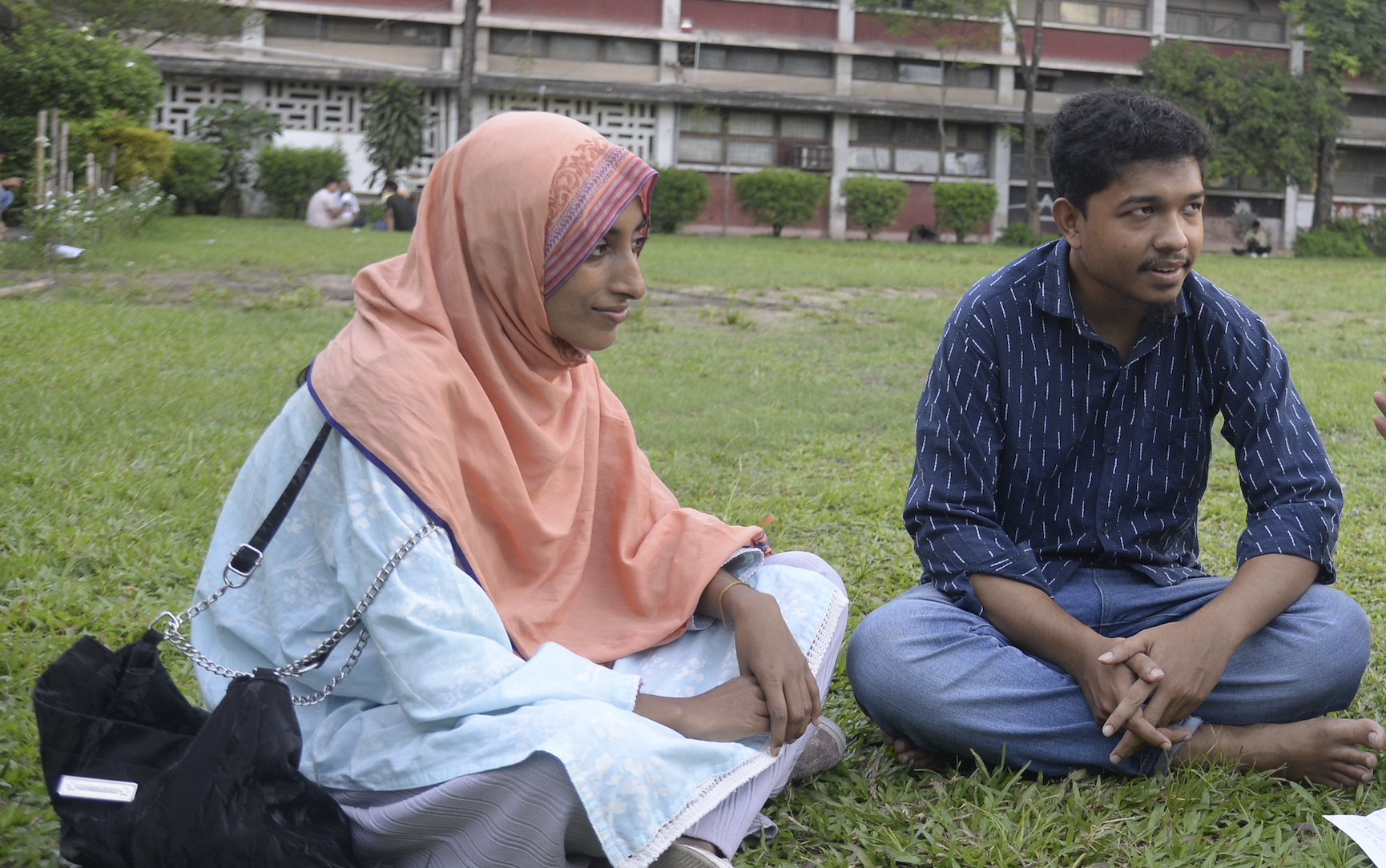
Instead, the media has tried to manufacture new “heavyweight” figures from outside DUCSU, sidelining those of us who actually emerged from the movement. Women candidates face the same bias: only those aligned with certain ideological agendas receive visibility, while others are silenced. We, too, are victims of this media discrimination.
AJ: Thanks to all of you for talking with Bangla Outlook.
–

